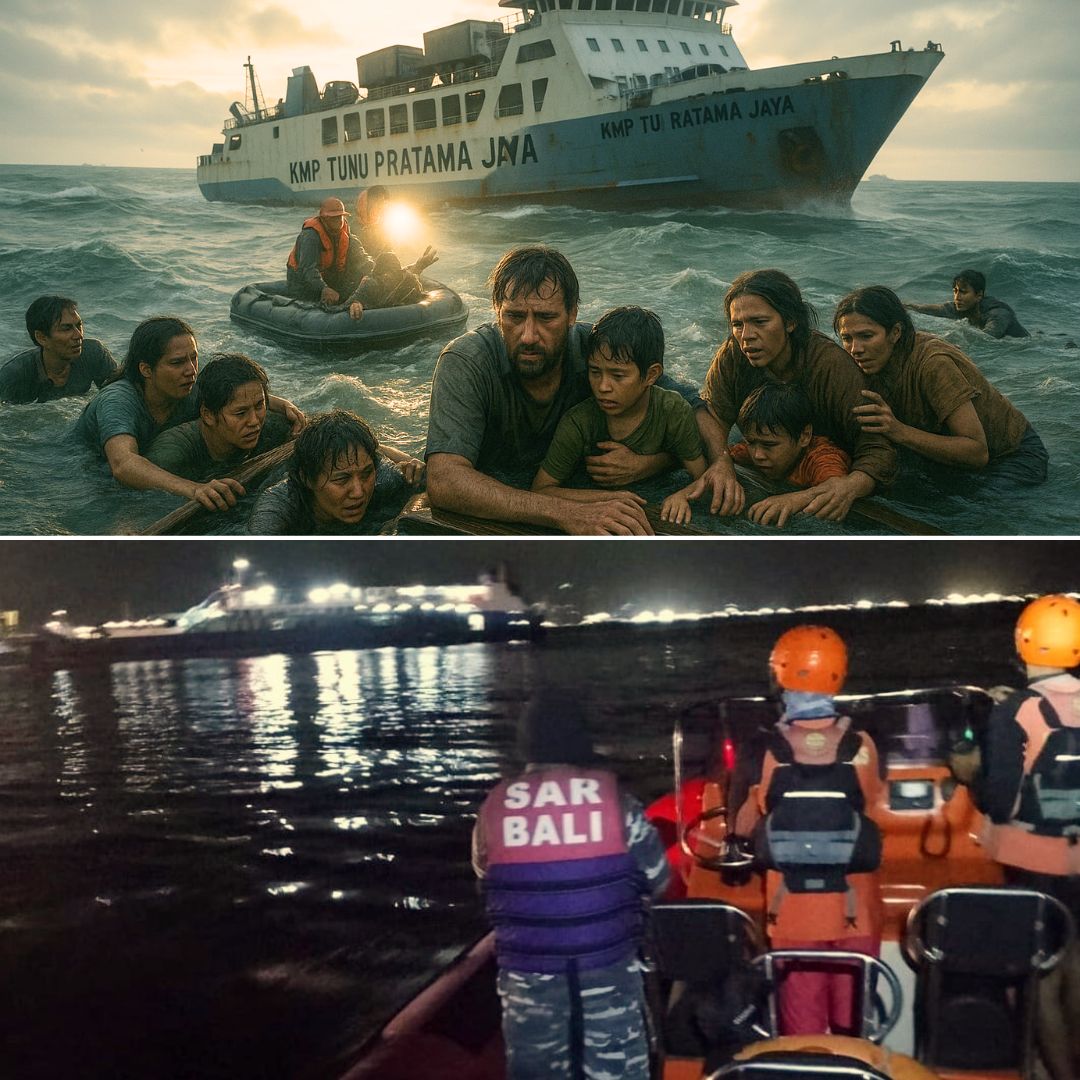At least four people have died and 23 have been rescued after the ferry KMP Tunu Pratama Jaya, carrying a total of 65 people, sank in the Bali Strait late Wednesday night. The vessel was travelling from East Java’s Ketapang port to Bali’s Gilimanuk port when it went down approximately 25 to 30 minutes after departure.
The ferry had 53 passengers, 12 crew members, and 22 vehicles on board, including 14 trucks. Rescue operations are ongoing amid challenging weather conditions, with dozens still missing. Indonesian President Prabowo Subianto has ordered an immediate emergency response, while authorities point to rough seas and possible mechanical failure as key factors in the disaster.
Rescue Operations Underway Amid Rough Seas
The National Search and Rescue Agency (BASARNAS) has deployed nine boats, including tugboats and inflatable crafts, to scour the Bali Strait for survivors and bodies. So far, four bodies have been recovered, and 23 people have been rescued, many found unconscious after drifting in turbulent waters for hours.
Banyuwangi Police Chief Rama Samtama Putra reported that survivors escaped using lifeboats and were found clinging to debris or floating in the sea. The ferry was carrying not only passengers and crew but also 22 vehicles, including several heavy trucks, which complicated rescue efforts. Rough waves reaching up to two metres and darkness have significantly hampered search operations, but teams continue to work tirelessly through the night.
Weather and Mechanical Issues Cited as Probable Causes
Preliminary investigations suggest that adverse weather conditions played a significant role in the tragedy. Waves reportedly reached heights of 2.5 metres, making navigation difficult and rescue efforts dangerous. Additionally, officials have pointed to a possible mechanical failure, with reports indicating the ferry experienced a machine leak and power outage shortly before sinking.
The ferry’s crew reportedly sent a distress signal to port authorities after detecting problems in the engine room. President Prabowo Subianto, who is currently abroad, has instructed all relevant agencies to prioritise the search and rescue mission and to provide maximum support to victims and their families.
The ferry route between Ketapang and Gilimanuk is a busy corridor, frequently used by commercial vehicles and travellers, underscoring the critical importance of safety on this passage.
Four people have been confirmed dead, 38 are missing, and 23 others survived after a passenger ship sank in the Bali Strait of Indonesia early Thursday, a senior official from the East Java Search and Rescue Office said on Thursday. pic.twitter.com/DPDQmAxZTy
— China Xinhua News (@XHNews) July 3, 2025
The Logical Indian’s Perspective
This tragic sinking once again shines a harsh light on the pressing need for enhanced maritime safety standards and rigorous enforcement in Indonesia’s ferry services. With thousands relying on ferries daily to connect the archipelago’s many islands, ensuring their safety is not just a regulatory responsibility but a humanitarian imperative.
The loss of life and trauma endured by survivors remind us that systemic improvements—ranging from vessel maintenance to emergency preparedness and crew training—cannot be delayed. We commend the brave rescue teams who risk their lives in perilous conditions and extend our heartfelt condolences to the families affected by this disaster.
Indonesian authorities have launched a search and rescue operation after the ferry Tunu Pratama Jaya sank in the Bali Strait.
— 鳳凰資訊 PhoenixTV News (@PhoenixTV_News) July 3, 2025
4 dead, 23 rescued, and 38 remain missing. The vessel had 53 passengers and 12 crew members onboard, according to Bali's Search and Rescue Chief. pic.twitter.com/Hgnu9HVUez












